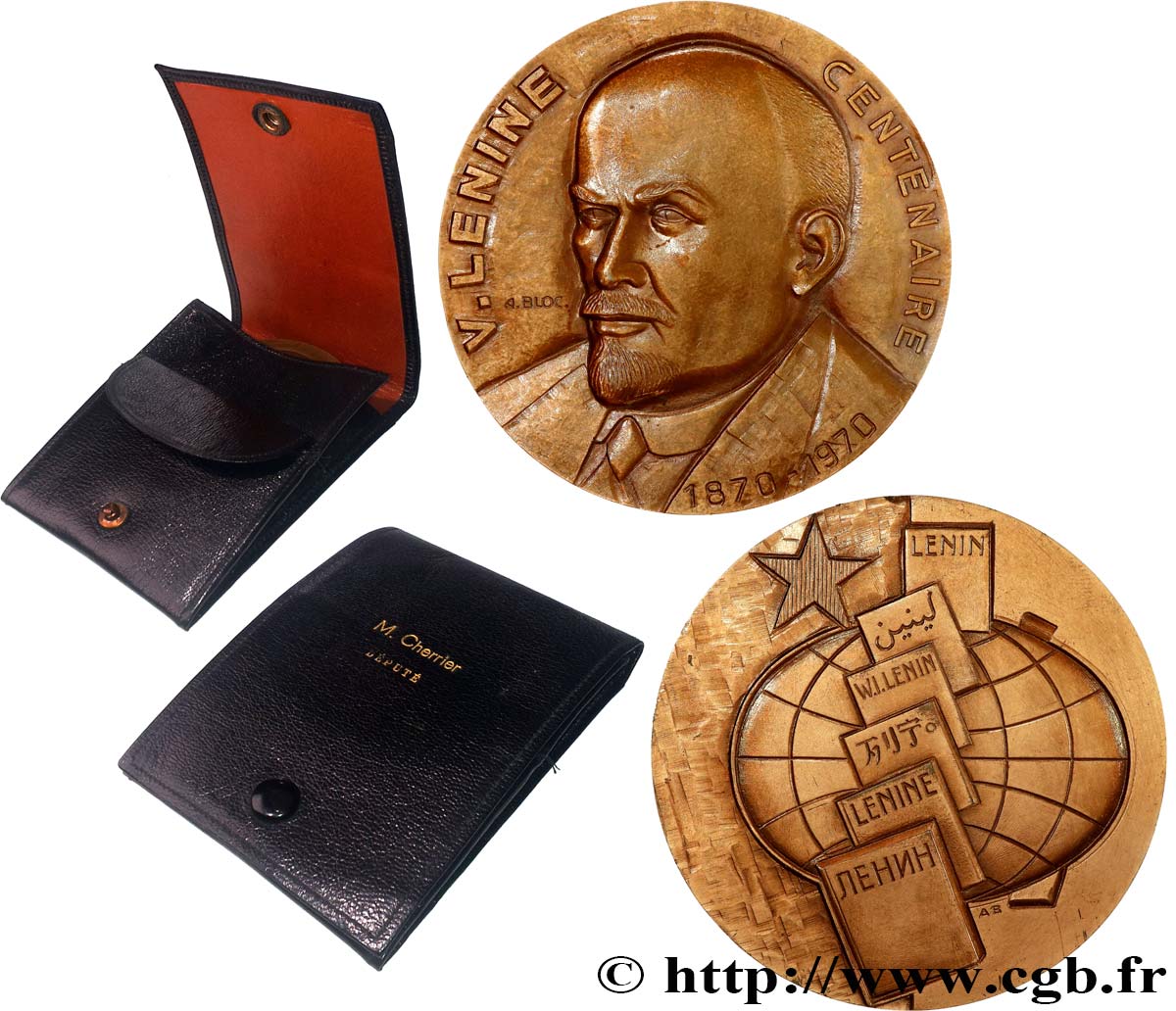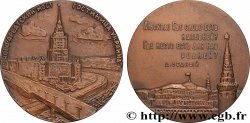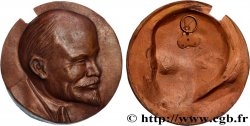fme_715728 - RUSSIA - SOVIET UNION Médaille, Centenaire de Lénine
90.00 €约 744.30 CNY
数量
加入购物车

种类 Médaille, Centenaire de Lénine
日期: 1970
铸币厂名称/城市 Russie, Moscou
材质 bronze
直径 67,5 mm
模子方针 12 h.
硬币制模工 BLOC André (1896-1966)
重量 189,57 g.
侧面 lisse + 1970 + corne BRONZE
印模 corne BRONZE
关于品相的说明
Patine hétérogène. La médaille est conservée dans un étui décerné au nom du député M. Cherrier
出版目录中的项代码 :
正面
正面的文字 V. LENINE - CENTENAIRE - 1870-1970.
正面的说明书 Buste de Lénine à gauche, signé : A. BLOC.
背面
背面的文字 LENINE EN DIVERSES LANGUES.
背面的说明书 Six livres avec le nom de LENINE en diverses langues sur un fond de mappemonde avec une étoile. Signé : AB.
评论
Vladimir Ilitch Oulianov (en russe : Влади́мир Ильи́ч Улья́нов Prononciation), dit Lénine (Ленин) (1870-1924) est un révolutionnaire, théoricien politique et homme d'État russe. Rejoignant à la fin du XIXe siècle le Parti ouvrier social-démocrate de Russie, la section russe de la Deuxième Internationale, il provoque en 1903 une scission du Parti russe et devient l'un des principaux dirigeants du courant bolchevik. Auteur d'une importante œuvre écrite d'inspiration marxiste, il se distingue par ses conceptions politiques qui font du parti l'élément moteur de la lutte des classes et de la dictature du prolétariat..
Vladimir Ilyich Ulyanov (Russian: Влади́мир Ильи́ч Улья́нов), known as Lenin (Ленин) (1870-1924) was a Russian revolutionary, political theorist and statesman. Joining the Russian Social Democratic Labour Party, the Russian section of the Second International, at the end of the 19th century, he provoked a split in the Russian Party in 1903 and became one of the main leaders of the Bolshevik movement. The author of a significant body of written work inspired by Marxism, he distinguished himself by his political conceptions which made the party the driving force of the class struggle and the dictatorship of the proletariat.
Vladimir Ilyich Ulyanov (Russian: Влади́мир Ильи́ч Улья́нов), known as Lenin (Ленин) (1870-1924) was a Russian revolutionary, political theorist and statesman. Joining the Russian Social Democratic Labour Party, the Russian section of the Second International, at the end of the 19th century, he provoked a split in the Russian Party in 1903 and became one of the main leaders of the Bolshevik movement. The author of a significant body of written work inspired by Marxism, he distinguished himself by his political conceptions which made the party the driving force of the class struggle and the dictatorship of the proletariat.








 对产品描述纠错
对产品描述纠错 打印
打印 分享我的选择
分享我的选择 提问
提问 Consign / sell
Consign / sell
 产品介绍
产品介绍










